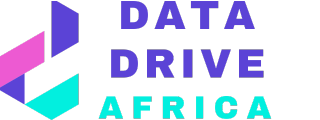Today, we have the pleasure of interviewing Ruth Achieng, a skilled Data Analyst with a passion for transforming raw data into meaningful insights. Ruth currently works at a leading healthcare organization, where she plays a vital role in improving data-driven decision-making. Let’s dive into her journey and learn from her experiences.
Q1: Can you introduce yourself and tell us about your current role in the data field?
Ruth: Thank you for having me! I’m Ruth Achieng, and I work as a Data Analyst at a Healthcare Solutions company. My role involves collecting and analyzing healthcare data to identify trends, evaluate patient outcomes, and provide recommendations for process improvements.
Q2: How did you get started in the data field, and what motivated you to pursue this career path?
Ruth: My journey into the data field started during my undergraduate studies in Statistics. I was always intrigued by the power of data to influence decision-making across various domains. As I delved deeper into the subject, I realized that I could contribute significantly to the healthcare sector by leveraging data analytics to improve patient care.
Q3: Did you study a data-related field in university, or are you self-taught? How did your educational background influence your journey?
Ruth: I pursued a Bachelor’s degree in Statistics, which provided me with a strong statistical foundation. However, the field of data analytics constantly evolves, so I have also engaged in self-learning through online courses and industry-specific workshops to stay updated with the latest tools and techniques.
Q4: Can you walk us through your career journey, from your first data-related job to your current position?
Ruth: After completing my studies, I started as a Data Analyst intern at a research institute, where I honed my analytical skills working on public health projects. This experience led me to a full-time Data Analyst position at a healthcare consultancy firm, and eventually, I joined the Healthcare Solutions company I am currently at, where I’ve had the opportunity to work on more extensive and impactful projects.
Q5: What were the key milestones or turning points in your career that helped you progress?
Ruth: Participating in data analytics competitions and winning some of them gave me a significant boost of confidence. They also caught the attention of potential employers and helped me land better job opportunities. Additionally, seeking mentorship from experienced data analysts played a crucial role in guiding my career decisions.
Q6: What are the primary technical skills and programming languages you use regularly in your work?
Ruth: In my work, I primarily use Python for data manipulation, analysis, and visualization. Additionally, I’m proficient in SQL for querying databases. Knowledge of tools like Tableau and Power BI has also been valuable in creating interactive dashboards.
Q7: Could you share some of the most interesting data projects you’ve worked on and the impact they had?
Ruth: One of the most interesting projects I worked on was analyzing patient data to identify patterns related to readmissions. By implementing predictive models, we were able to significantly reduce readmission rates and optimize patient care plans, leading to better patient outcomes.
Q8: How do you stay updated with the latest trends and advancements in the data field?
Ruth: Continuous learning is essential in the data field. I subscribe to data science newsletters, follow thought leaders on social media. Collaborating with other data professionals through online forums also helps me stay informed about emerging trends.
Q9: How do you address ethical challenges related to data privacy, bias, and fairness in your work?
Ruth: Ethical considerations are paramount, especially in healthcare data. We ensure that patient data is anonymized and aggregated to protect privacy. Additionally, we perform thorough checks to detect and mitigate any potential bias in our data and models.
Q10: Where do you see the data field heading in the next few years, and what skills will be most important for professionals to thrive?
Ruth: In the coming years, I believe data analytics will play an even more significant role in healthcare decision-making, driving personalized treatments and optimizing resource allocation. For professionals to thrive, honing skills in machine learning, data visualization, and effective storytelling will be crucial to convey insights to diverse stakeholders.
Subscribe to our email newsletter to get the latest posts delivered right to your email.


